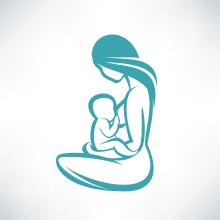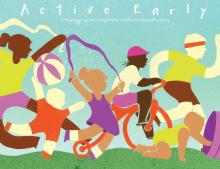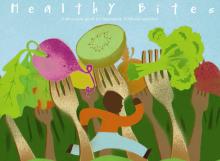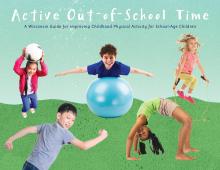Nutrition, Physical Activity, and Obesity: Early Care and Education Initiatives
The Wisconsin Department of Health Services (DHS) supports all those who work to improve the health of our state’s children. This includes child care, preschool, Head Start, early childhood special education, and kindergarten programs. We offer tools and resources to help improve physical activity and nutrition in early childhood settings. With the right program policies, children can get a sound start to proper growth and development.
The health and well-being of children is directly related to:
- Strength and development of their large and small muscles.
- Sensory experiences.
Practicing healthy behaviors. Our Nutrition, Physical Activity, and Obesity Prevention Program aims to help kids set up healthy habits for life and care for their own physical needs. You’ll find ideas for offering a variety of age-appropriate ways for kids to learn the importance of taking good care of their bodies.
Breastfeeding initiatives
Learn about our breastfeeding initiatives. You can find resources to assess and offer breastfeeding supports and practices in a variety of settings.
The Ten Steps to Breastfeeding-Friendly Child Care Centers, P-00022 is available in English and Spanish. It’s a resource kit for child care providers and community groups to help promote, protect, and support breastfeeding families.
Find more ideas for Breastfeeding Friendly Child Care on the Wisconsin Breastfeeding Coalition website.
Active Early
Active Early: A Wisconsin Guide for Improving Childhood Physical Activity, P-00280 is available in English and Spanish.
The kit outlines how to support a healthier environment for children in early care and education settings.
It offers tips and specific ideas for different age groups.
Healthy Bites
Healthy Bites: A Wisconsin Guide for Improving Childhood Nutrition (PDF) is a resource kit that supports good health for children in early care and education settings. Access the Spanish version of Healthy Bites (PDF).
The kit includes assessment tools. It suggests strategies to improve practices and policies to improve the nutritional quality of food and to educate child care providers, parents, and caregivers.
Active Out-of-School Time
This resource focuses on physical activity.
It supports healthy environments for school-age children in out-of-school time settings.
Settings serving children during non-school hours could include:
- Child care programs.
- After-school programs.
- Emergency shelters.
- Other locations for care.
Improving Physical Activity and Healthy Eating During Out of School Time, P-03472
This resource provides a list of best-practices around improving physical activity and healthy eating for programs serving children during out of school time.
Healthy beverage choices
Supporting Healthy Beverage Choices in Out-of-School Time Programs in Wisconsin
This brief summarizes a model offered by the Childhood Obesity Intervention Cost-Effectiveness Study (CHOICES) Learning Collaborative Partnership.
The brief examines a policy to promote healthy beverage choices in licensed, out-of-school time programs in Wisconsin.
Gardening initiatives
Learn about gardening initiatives for early care and education.
We offer resources and support for connecting children to gardening and fruits and vegetables.
More resources and tools
Assessment tools
Go NAPSACC (Nutrition and Physical Activity Self-Assessment for Child Care)—Program that offers tools and resources to help child care providers assess and improve their current nutrition and physical activity practices and policies. A log in from the Department of Children and Families is required to access the full website.
See the Active Early and Healthy Bites resources for more evaluation materials.
Related resources
YoungStar—A program of the Wisconsin Department of Children and Families. It aims to improve the quality of child care for Wisconsin children by evaluating and rating the quality of care given by child care providers.
Early Childhood Obesity Prevention Policies—A report from the National Academy of Sciences: Health and Medicine Division. It recommends actions that health care workers, caregivers, and policymakers can take to prevent obesity in children ages five and younger.






